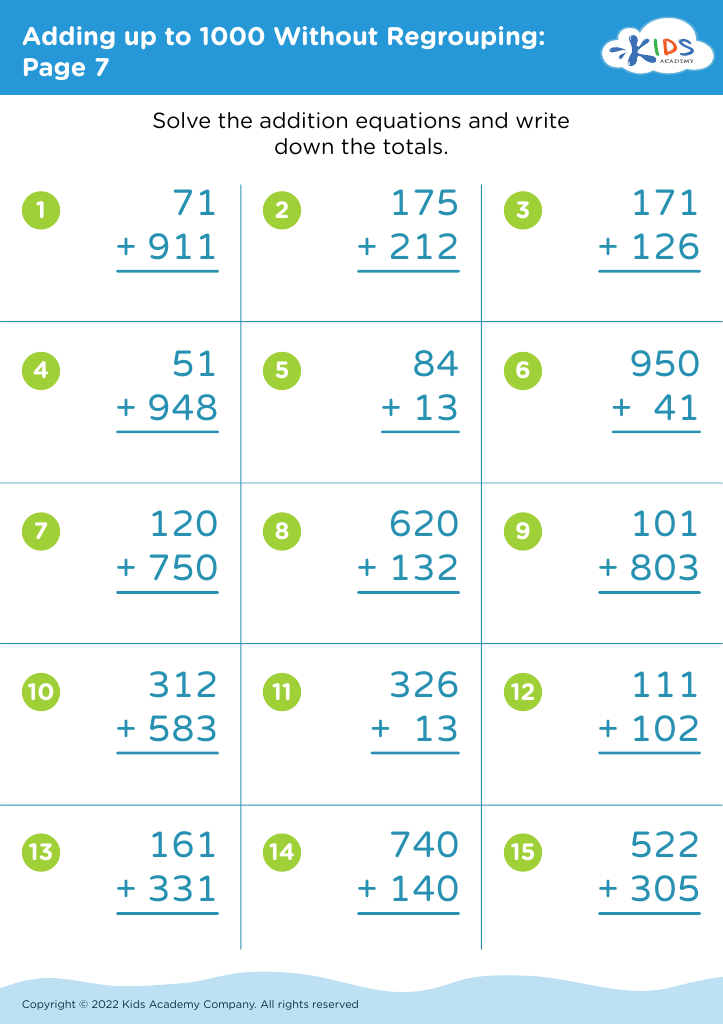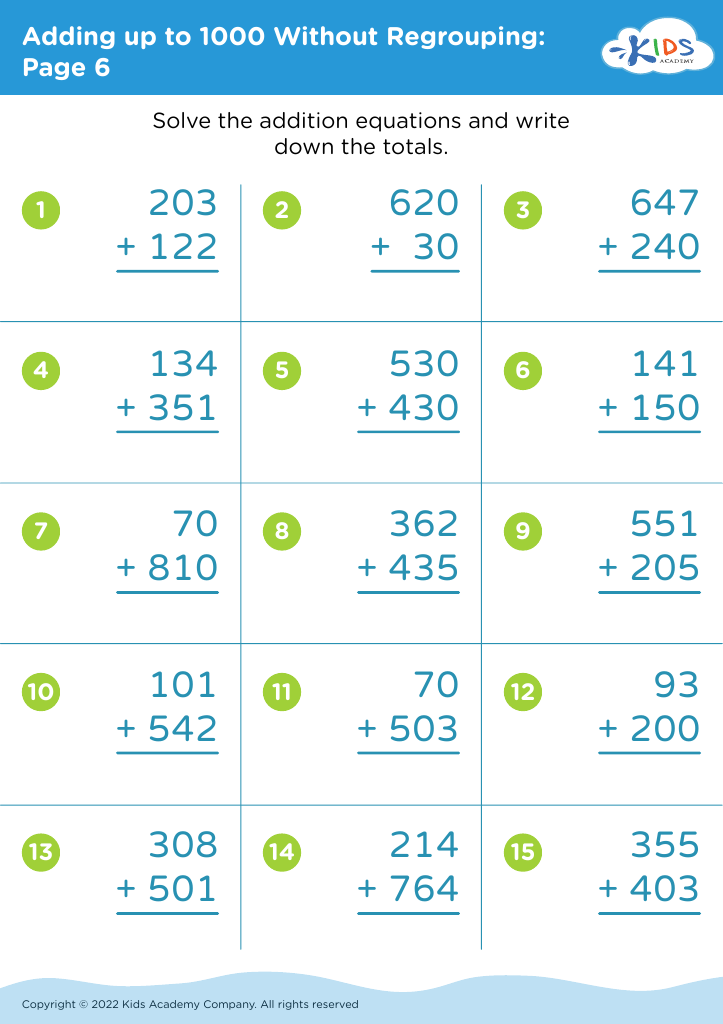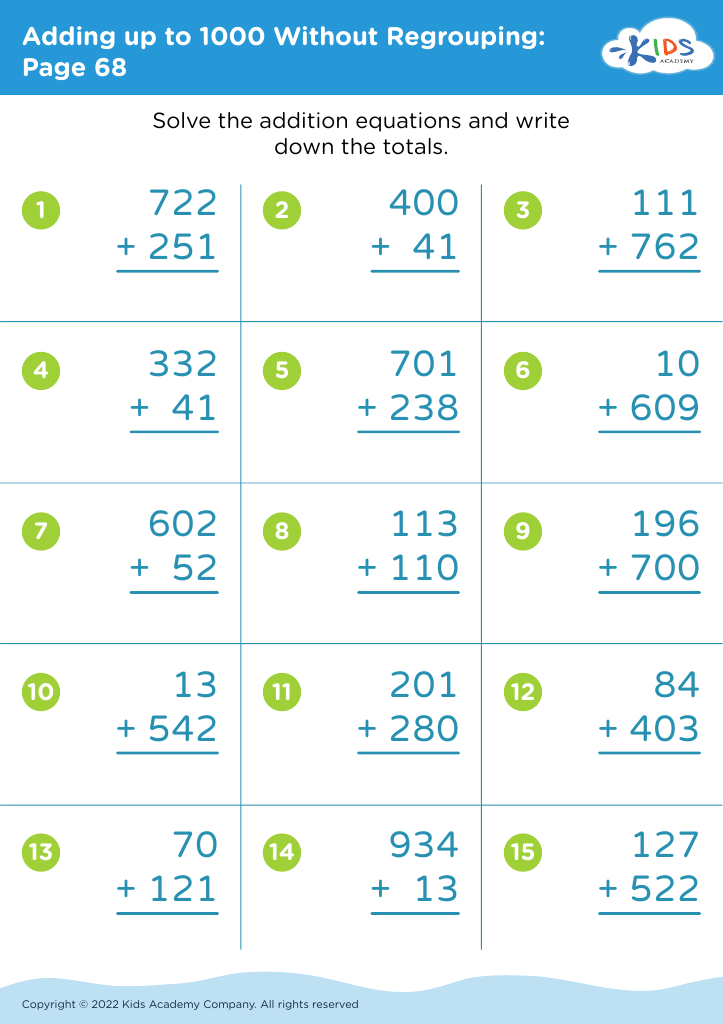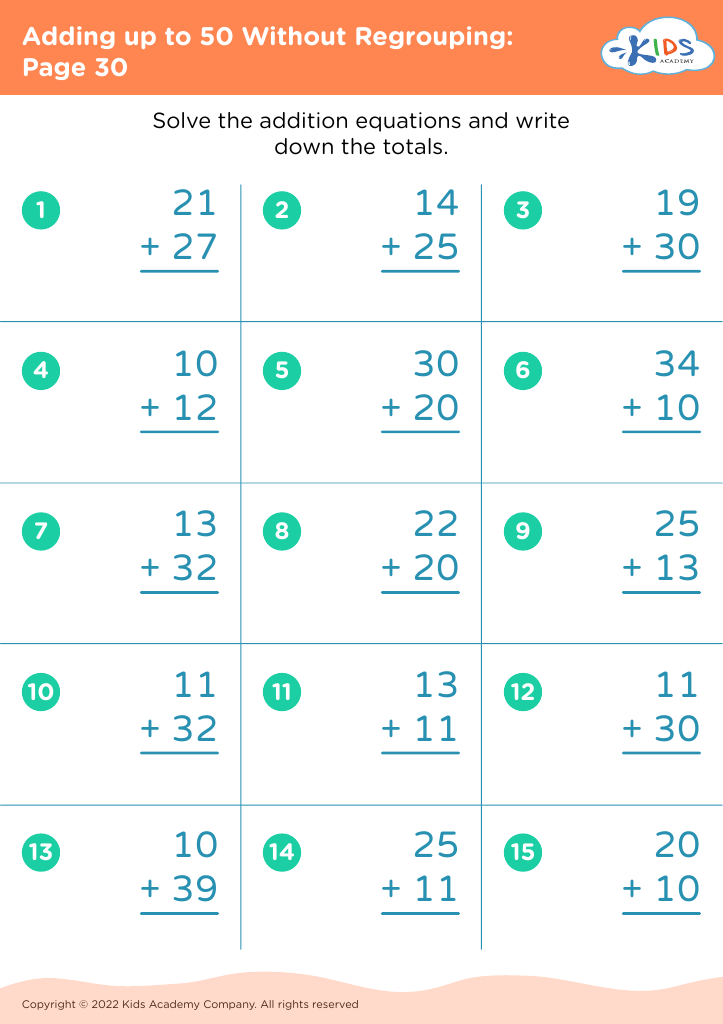Improving counting skills Addition Worksheets for Ages 3-9
10 filtered results
-
From - To
Discover our "Improving Counting Skills Addition Worksheets for Ages 3-9" at Kids Academy, designed to make math fun and engaging. Perfect for young learners, our worksheets help build a strong foundation in counting and addition. With colorful visuals and varied exercises, children will master numbers, sums, and counting strategies effortlessly. Tailored for different skill levels, these printable activities ensure consistent progress and confidence in math. Provide your child with the tools they need to succeed in their numerical journey. Visit Kids Academy and explore our comprehensive collection of addition worksheets today!
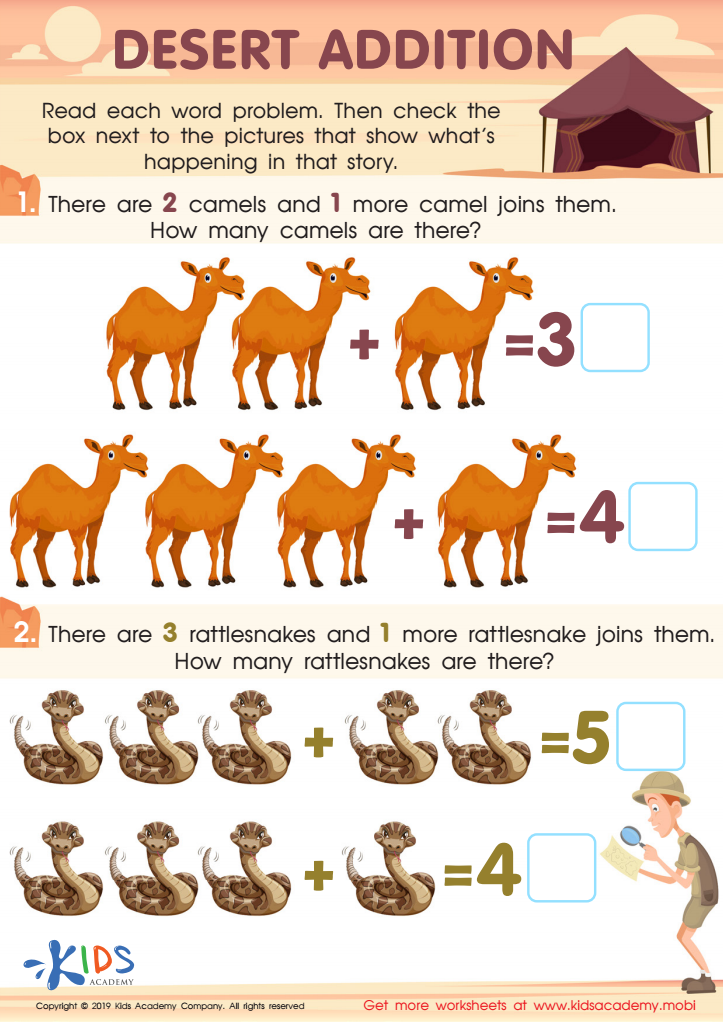

Desert Addition Worksheet
Improving counting and addition skills in children ages 3-9 is fundamental for their overall cognitive development and future academic success. These early math skills lay the groundwork for more complex mathematical concepts, making them crucial for a child's educational journey.
For one, proficient counting teaches children the important concept of number sense – understanding what numbers mean, how they relate to one another, and their applied relationships in the real world. Good addition skills build on this by teaching children to combine groups of objects or counts, enhancing their logical thinking, problem-solving skills, and ability to perform arithmetic operations more accurately.
Moreover, these foundational skills are crucial for developing a child's confidence in math, an essential component in educational settings. Children who master counting and basic addition are more likely to view math as enjoyable and approachable, reducing math anxiety and promoting a positive attitude towards learning. Additionally, these early skills are often tied to better performance not only in math but also in subjects that require logical analysis, like science and engineering.
Equipping children ages 3-9 with strong counting and addition capabilities is an investment in their academic resilience and capacity to handle more complex educational challenges. Therefore, parents and teachers should prioritize fostering these essential skills to support children's holistic intellectual growth.

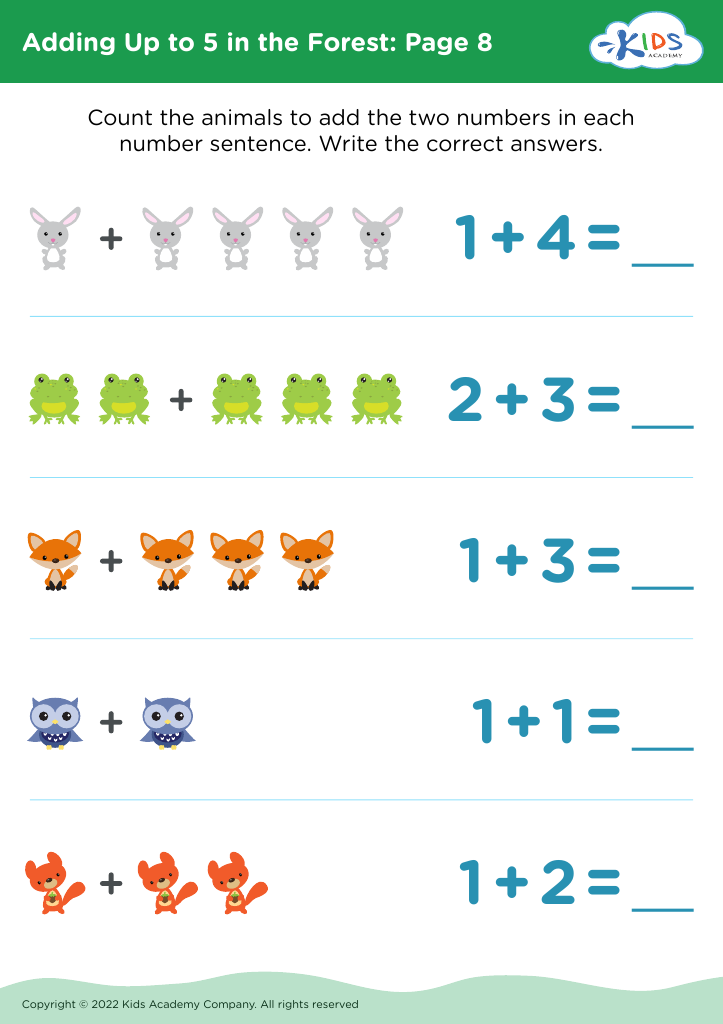
 Assign to My Students
Assign to My Students
